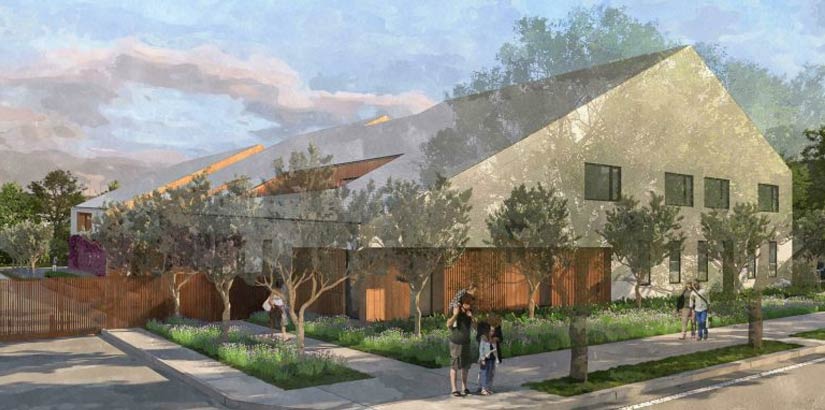From the CIO
Many investors seek to align their investments with social or environmental concerns. Integrating environmental, social, and governance (ESG) criteria into portfolio decisions can provide a link between the values of investors and the actions of companies that impact our community and economy. For stock investors, including ESG in your portfolio can be a powerful tool for addressing social and environmental challenges in a collaborative way, yet the results are often incremental and can take time.
Investments in bonds can have a more immediate and tangible impact by participating in the direct funding of active projects. This quarter, our Impact in Action Report looks at investment in affordable housing in the Bay Area, and its connection to voter-approved bond measures in Alameda County.
-Kate King, CFP®, Chief Investment Officer
Impact in Action: Affordable Housing
Many North Berkeley clients have elected to align their portfolio with social and environmental values. These portfolios include a bond fund that offers a unique way to create impact. Clients are invested in a national pool of bonds, and the fund directs our clients’ invested dollars predominantly into projects based in Alameda and Contra Costa counties. When we invest more, more capital flows to these two local counties. Of the North Berkeley client allocation in the fund, approximately 62% is directed to affordable rental housing and affordable mortgages in our local counties.
Our case study today looks at the way voter-approved funding for affordable housing can create opportunity for bond investors to participate in positive impact.
Voting for Change
In 2016, a supermajority of Alameda County voters approved Measure A1 to issue $580M of general obligation bonds to finance affordable housing. The bonds would be issued in three series, and support development of low-income rental housing, down payment and construction loan assistance, and loans to keep existing low-income homeowners in their homes. The majority of housing units created will focus on very low-income households, and another portion will focus on middle-income workers who may be priced out of housing in the Bay Area such as teachers, mechanics, and childcare workers.
Initial Impact of Series A Funding
♦
Created approximately 3,200 rental housing units, of which 1,200 are reserved for persons currently experiencing homelessness or at risk of experiencing homelessness
♦
Completed 18 rental housing projects and provided funds for 13 projects currently under construction
♦
Created
15,000 jobs
(45% to local employees; 30% qualifying as low-income)
♦
Provided down payment assistance loans to 100 homeowners, and assistance to 85 more to preserve their homes
♦
Provided $10 million for the acquisition of two hotels with 240 beds to support housing for persons experiencing homelessness
Investing for Change
The Community Impact Bond Fund invested in both the Series A and Series B bonds issued by Alameda County for affordable housing. The fund manages a total of $3.1 billion, and represents an important counterparty to municipalities across the country looking to finance various kinds of neighborhood revitalization and community development. They recently published information on several of the projects funded by Series B bonds inside the Rental Housing Development Program; the two examples below illustrate the impact an investor can have in partnership with voter-authorized bond funding.

7th & Campbell
Located near the main post office in West Oakland and two blocks from the West Oakland BART station, this five-story building will have 78 residential units reserved entirely for low-income households as well as targeted commercial space to include a fitness center and a grocery store. Some units are ADA accessible, and supportive services will be provided onsite. With solar panels and energy-efficient building systems, it will be nearly “net-zero” in terms of emissions.

1245 McKay
On the campus of the Alameda Wellness Center, 90 units of affordable rental housing are being developed for at-risk seniors. All the units will be reserved for chronically homeless and very-low-income households. Supportive services will enable medically vulnerable and homeless seniors to regain housing and also to stabilize physical and behavioral health, address trauma, and receive palliative or end-of-life care when appropriate. The rental housing complements a medical respite center on the same campus that will receive eligible residents upon discharge from East Bay hospitals.
This commentary on this website reflects the personal opinions, viewpoints, and analyses of the North Berkeley Wealth Management (“North Berkeley”) employees providing such comments, and should not be regarded as a description of advisory services provided by North Berkeley or performance returns of any North Berkeley client. The views reflected in the commentary are subject to change at any time without notice. Nothing on this website constitutes investment advice, performance data, or any recommendation that any particular security, portfolio of securities, transaction, or investment strategy is suitable for any specific person. Any mention of a particular security and related performance data is not a recommendation to buy or sell that security. North Berkeley manages its clients’ accounts using a variety of investment techniques and strategies, which are not necessarily discussed in the commentary. Investments in securities involve the risk of loss. Past performance is no guarantee of future results.

